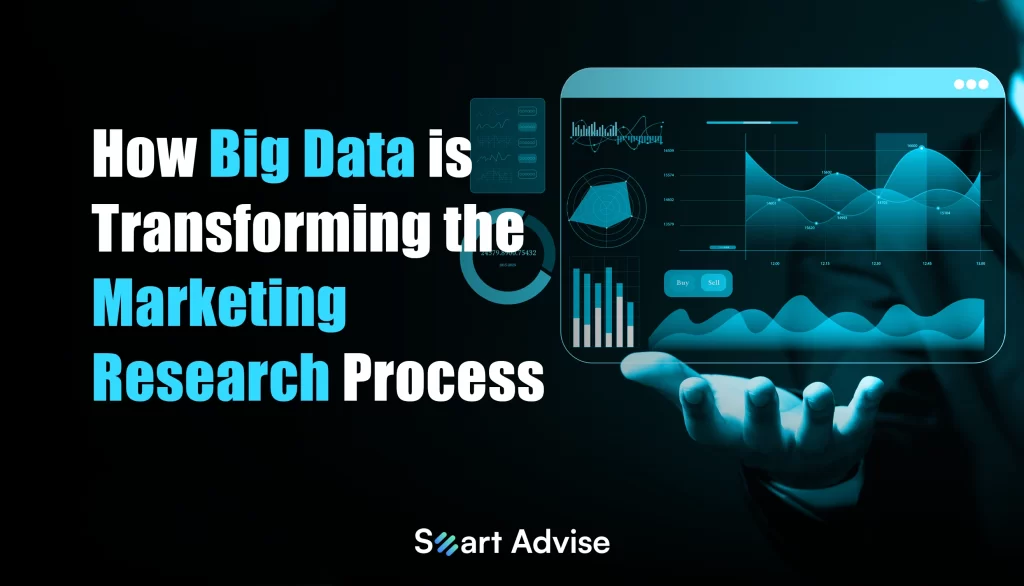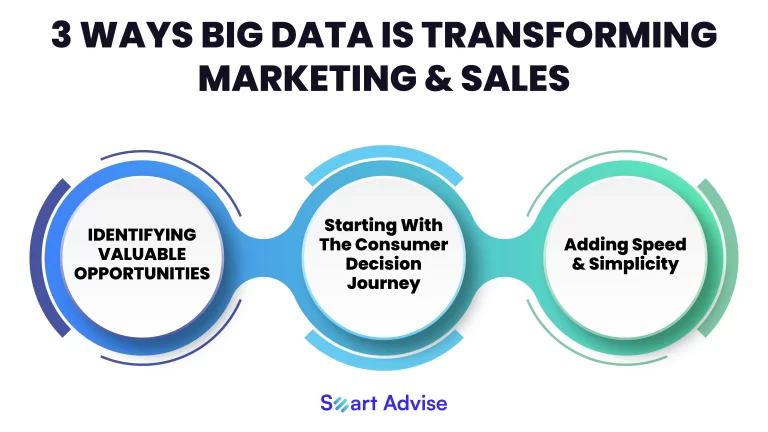
Explore the impact of big data on marketing research, from deciphering consumer behavior to shaping successful campaigns
The term “big data” describes the huge amounts of data, both organized and unstructured, that businesses produce and collect every day. With the advent of big data, the marketing research process has undergone a profound transformation. Further in this post, we’ll explore how big data is reshaping marketing research and decision-making processes.
Big Data in Marketing Research
The term “big data” is used to describe the huge amounts of data, both structured and unstructured, that businesses produce and collect every day. This data encompasses a wide range of sources, including social media, online transactions, customer reviews, and more. Harnessing the power of big data in marketing research offers numerous benefits:
Customer Insights
One of the most significant advantages of big data in marketing research is the ability to gain deeper insights into customer behavior. Through poring over mountains of information, marketers can better profile their clients, cater to their tastes, and anticipate their actions. For example, they can determine which products or services customers are most likely to purchase based on their browsing history, purchase history, and online interactions.
Personalized Marketing
Big data enables marketers to tailor their marketing efforts to individual customers. Through advanced analytics and machine learning algorithms, businesses can send personalized recommendations, advertisements, and offers. Personalization of this nature has been shown to boost conversion rates and customer engagement.
A study by Epsilon found that 80% of consumers are more likely to make a purchase when brands offer personalized experiences.
Real-time Analytics
Traditional marketing research methods often involve time-consuming surveys and focus groups. With big data, marketers can access real-time analytics and feedback. This allows them to make immediate adjustments to their campaigns based on current trends and customer reactions.
A report by Statista stated First to cross 1 billion registered accounts, Facebook now has over 2.9 billion monthly active users. Facebook, WhatsApp, Facebook Messenger, and Instagram are Meta Platforms’ four largest social media platforms, each with over one billion monthly active users. Facebook claimed over 3.7 billion monthly core Family product users in Q4 2022.
Competitive Advantage
Businesses that effectively use big data gain a competitive edge. Companies can better adapt their strategies and offerings to the wants of consumers if they can anticipate trends and learn more about their customers than their rivals.
A survey by Business Wire found that 97% of leading companies invest in big data and AI to maintain their competitive edge.

Case Studies: Big Data in Action
Let’s look at a few case studies that illustrate how big data has transformed the marketing research process for some prominent companies:
Netflix
Netflix is a prime example of a company that uses big data to drive its success. By analyzing user viewing habits, Netflix can recommend personalized content to its subscribers. This approach not only increases user satisfaction but also keeps viewers engaged and subscribed to the platform.
Netflix reported over 238.9 million paid subscribers worldwide in the second quarter of 2023.
Amazon
Amazon utilizes big data to make product recommendations based on customers’ past purchases and browsing history. This personalized approach has contributed significantly to Amazon’s e-commerce dominance.
Amazon’s net sales by the second quarter of 2023 exceeded $134.8 billion.
Starbucks
Starbucks uses big data to optimize its store locations. By tracking foot traffic data, demographic information, and customer preferences, Starbucks can strategically open new stores and refine its menu offerings to cater to local tastes.
As of November 2022, Starbucks had over 35,700 stores worldwide (across 80+ countries).
Challenges and Ethical Considerations
While big data offers immense potential in marketing research, it also presents challenges and ethical considerations. Some of these challenges include:
Data Privacy
Customers’ personal information is a legitimate issue while collecting and analyzing massive datasets. Businesses must be transparent about how they use customer data and comply with data protection regulations like GDPR and CCPA.
According to a survey by Pew Research Center, 79% of Americans are concerned about how companies use their data.
Data Security
The chances of data breaches increases in tandem with the growth in data volumes. In order to safeguard customer data, businesses need to implement stringent cyber security safeguards.
Statista reported that the global average cost of a data breach in 2020 was $4.45 million.
Bias and Fairness
Big data algorithms can inadvertently perpetuate bias, leading to unfair discrimination in marketing practices. Businesses need to carefully review and adjust their algorithms to avoid such issues.
What’s Next for Marketing Research with Big Data
As technology continues to advance, the role of big data in marketing research will only become more pronounced. Artificial intelligence and machine learning will enable marketers to extract even deeper insights from data, leading to more effective marketing strategies.
IDC predicts (Published in Business Wire) that global spending on AI and cognitive systems will reach $77.6 billion by 2022.
In conclusion,
Big data has revolutionized the marketing research process by providing access to vast amounts of information, enabling personalized marketing, offering real-time insights, and giving businesses a competitive advantage. However, it also comes with challenges related to privacy, security, and bias. To utilize the full potential of big data, companies must navigate these challenges ethically and responsibly. As we move forward, the future of marketing research will undoubtedly be shaped by the continued evolution and integration of big data analytics. Thus, in this journey forward, let our researched data guide you to the right success, Connect with us now for that!